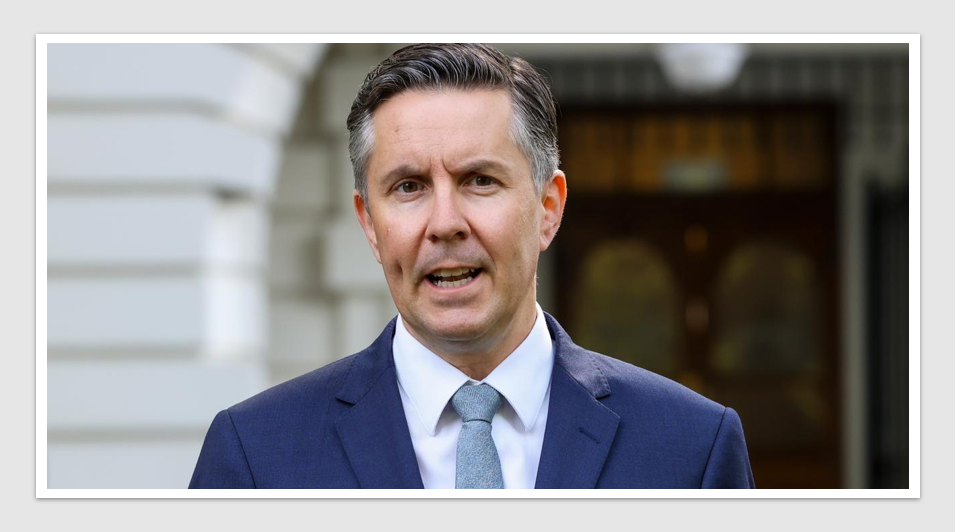News & Trends - MedTech & Diagnostics
Investing today will deliver a more sustainable tomorrow

MedTech News: Pat Williams, Managing Director of Edwards Lifesciences Australia, New Zealand and Korea recently reflected on the impact of the COVID-19 pandemic on patients with cardiovascular disease and why investing today will deliver a more sustainable tomorrow.
According the British Heart Foundation analysis more than 96,000 fewer heart procedures across England and Wales were carried out in 2020 and more than 26,000 extra deaths occurred in private homes last year compared to the five years prior.
“We are lucky that Australia’s health system, for the most part, has been spared the seismic impact of the pandemic upon potentially life-saving surgery for patients,” said Mr Williams.
“But the treatment of heart diseases, like structural heart disease, is not a luxury that people can go without. Structural heart disease has been described as ‘the next cardiac epidemic’,” he added.
Common symptoms include shortness of breath, fatigue, light headedness and chest pain. However, patients often do not recognise these symptoms and mistake them for general signs of aging.
“Structural heart disease impacts 2.5% of Australians, rising to 8.5% of over-65s. Aortic Stenosis (AS) is one of the most prevalent and serious conditions impacting elderly people in Australia. It is estimated that one in eight elderly Australians has AS. Up to 50% of people who develop severe aortic stenosis symptoms will die within an average of two years if they do not have their aortic valve replaced,” Mr Williams noted.
According to a survey Heart Health – Australia conducted by YouGov (2020) of 2,077 Australians over the age of 60 years old, commissioned by Edwards Lifesciences, awareness of this disease remains low with over 8 in 10 Australians over 60 unaware of AS. Worryingly, the survey found that 4 in 10 say they are not more concerned, even after being presented with the prognosis for people diagnosed with AS who do not receive an aortic valve replacement.
“In too many cases the illness is undetected, undiagnosed, untreated, or treated too late. This results in avoidable deaths, high costs and significant compromises to people’s quality of life. Much of this burden could be alleviated by addressing the gaps that exist along the patient care pathway,” said Mr Williams.
“The Heart Failure guidelines written by both the National Heart Foundation and Cardiac Society of Australia and New Zealand under valvular heart disease recognise that chronic heart failure is common for both mitral and aortic valve disease patients. Patients with AS are an increasing cause of heart failure in older people.
“The current guidelines make it clear the “physical examination” should include “assessment of vital signs…and auscultation (apex beat, gallop rhythm, and murmurs)…”
“Unfortunately, GPs are not checking all patients over 65 years old by auscultating the heart of their patients with a stethoscope for an “apex beat, gallop rhythm and or murmurs.” Our survey found that 4 in 10 Australians say their doctor rarely or never checks their heart with a stethoscope.
“The good news is we have a ready-made solution. A Heart Health Check is a 20-minute check-up fully subsidised through Medicare to assess a patient’s risk of having a heart attack or stroke. Currently, the Government is considering whether funding will be extended beyond April this year.
“We have seen through COVID-19 how our health directly impacts the economy. With an ageing population making older Australians remain healthier through preventative measures like a Heart Health Check seems like a wise investment.
“All we need now is for the current ‘physical examination’ part of this Heart Health Check to align with the current Australian Heart Failure Guidelines,” he concluded.
News & Trends - Biotechnology

AusBiotech appoints new CEO: Former Sanofi corporate affairs and sustainability leader takes the helm
Biotech News: AusBiotech, the nation’s leading industry body for the biotech sector, has named former leader at Sanofi, Rebekah Cassidy, […]
MoreNews & Trends - MedTech & Diagnostics

Federal government invests in Siemens Healthineers scanner to ‘reduce wait times’ for cancer diagnosis
MedTech & Diagnostics News: The Albanese Government is investing $12 million through the 2024–25 Budget, to purchase and install a […]
MoreNews & Trends - MedTech & Diagnostics

Cardiac device benefits face more cuts, while technical services remain secure in the short term
MedTech & Diagnostics News: Starting from July 2024, Cardiac Implantable Electronic Devices (CIED) listed on the Prescribed List (PL) will […]
MoreNews & Trends - Biotechnology

CSL’s world-first gene therapy heads for MSAC evaluation
Biotech News: CSL’s world-first gene therapy for haemophilia B is scheduled for consideration at the upcoming Medical Services Advisory Committee (MSAC) […]
More